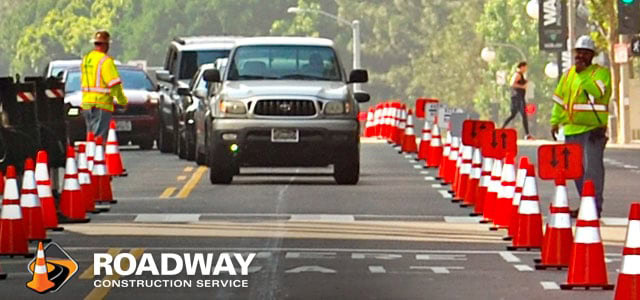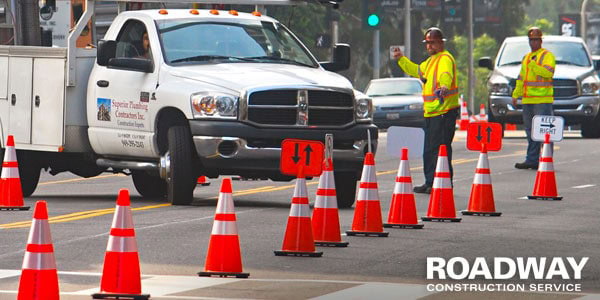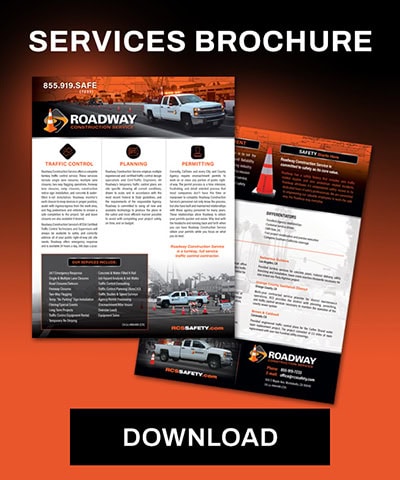Traffic Control Plans
When roads are closed for construction work or special events, detours often are needed for traffic redirection. Make no mistake about it. Such redirection requires a supreme effort, demanding meticulous road detour planning and management. Roadway Construction Service has what it takes to excel in this area. Thanks to our staff of top-flight personnel and cutting-edge techniques, we consistently develop solid traffic control plans incorporating efficient detour solutions.
Call: (562) 903-0011
When it comes to road detour planning and management, we must consider the type of closure involved. As things stand, there’s more than one way to close a road. In fact, there are three possible closure types to consider. Our planners are well-acquainted with each one of them. The detour strategies they implement will depend on the type of closure needed.
The first type is a full road closure. As the name implies, this means an entire street or highway gets shut down for project purposes. This option has a dual purpose. First, it keeps motorists and pedestrians safely away from work zones or other critical areas. At the same time, it keeps work crews a safe distance from traffic. You might call it double protection.
Detours are implemented most often for the full closure. Along with separating workers from potential hazards, these redirects allow crews to safely use existing roads, if necessary.
Traffic Control
Clearly, safety is the most important benefit derived from detours. Yet, detours frequently offer another distinct advantage — efficient traffic redirection often reduces project time. And the fewer billable hours expended, the lower the project cost. Interesting how that works. Therefore, solid traffic control plans delineating effective detour strategies can add considerable value to every project.
In detour planning, sometimes our strategists must know when not to use detours. Typically, detours won’t be needed for one of the other types of closures. These are partial road closures and lane closures. The partial often occurs during a freeway construction project, closing one side of the highway and leaving the other open. Lane closures, which we’ve all experienced, restrict the number of lanes available to motorists.
Detours, then, generally are required for a full road closure. But no matter which type of closure we’re dealing with, Roadway Construction planners are ready for all.
While addressing the complex issue of detours, our road detour planning and management team must select the necessary guidance components. What exactly will be used to redirect traffic to desired areas?
Road Barricades and Barriers
Road barricades are one of the primary components used for this purpose. Big or small, they all establish important boundaries for motorists, bicyclists, and in some cases, pedestrians.
One the smaller side of the barricade spectrum are traffic cones. Brightly colored to enhance visibility, these barriers prove that a little bit goes a long way. K-rail (or Jersey barrier), on the other hand, is utilized when muscle and strength are demanded. With their wall-like dimensions and solidity, these barricades prevent traffic from entering restricted areas.
Traffic Control Services
And let’s not forget all of our traffic control services including traffic control flaggers, who further guide motorists and pedestrians with flags and hand signals. Together with effectively implemented barricades, flaggers help ensure the continued success of our widely acclaimed road detour planning and management solutions.



